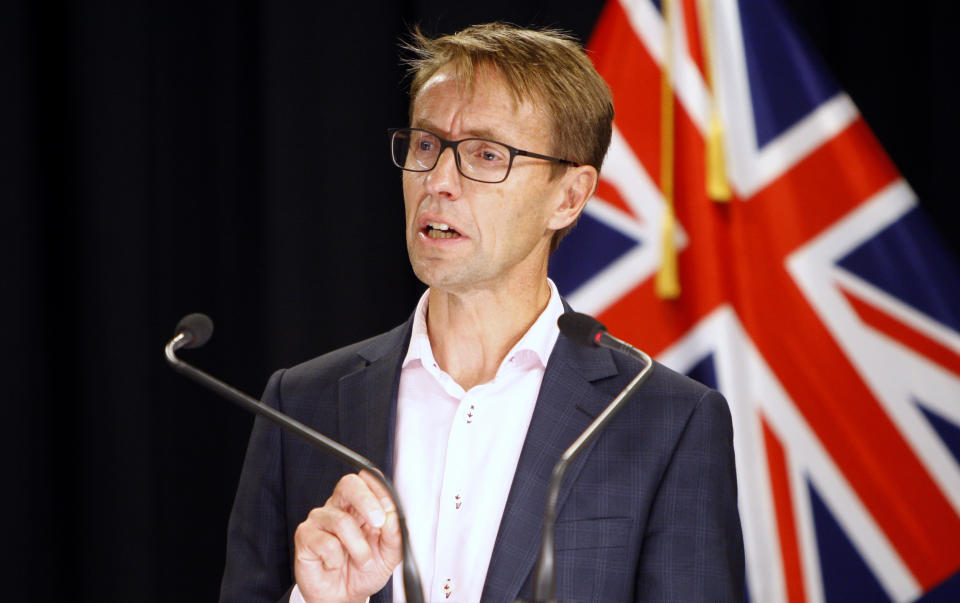New Zealand citizens returning home may be quarantined in campervans

New Zealand's government is considering using campervans on a Navy base in Auckland for its citizens to isolate in after returning from overseas to stop the spread of coronavirus.
As hotels reach capacity in the city, the most populous in the country, an increase in people returning from overseas as coronavirus restrictions relax may cause a lack of accommodation for the mandatory two-week isolation period.
Whangaparaoa military base was already used to isolate New Zealand nationals returning on repatriation flights from Wuhan, China, then the epicentre of the coronavirus outbreak.
Dr Ashley Bloomfield, the director-general of health and the public face of the country's battle against the disease, was asked if the Whangaparaoa military base in Auckland would once again be used.

He said: “It was raised in discussion, but I don't think that's the issue, we are more looking at whether we can use campervans again, because they worked very well when we did that first flight out of Wuhan.
“Campervans could be a very useful way to stand up additional capacity and these issues are under active discussion in government.”
Dr Bloomfield has also confirmed two new cases of the virus at managed isolation facilities.
“Capacity has been reached in Auckland,” said air commodore Darryn Webb, the head of managed isolation and quarantine, according to 1News, a New Zealand television network.
Read more: What were the first measures other countries relaxed from coronavirus lockdown?
There are now 20 managed isolation and quarantine facilities in Rotorua, Christchurch and Auckland.
“We do acknowledge that those arriving on this flight had an expectation they were completing their managed isolation in Auckland,” Webb said.
“However, an increase in arrivals returning to New Zealand has required alternative plans to be put in place.
“We are working to address capacity due to the increase in arrivals, and may look to other regions to help accommodate future arrivals.”
Read more: What were the first measures other countries relaxed from coronavirus lockdown?
Last week, New Zealand recorded its first new coronavirus cases for 24 days after two women who travelled from the UK tested positive for COVID-19. The previous week, the island country had been able to declare itself clear of the virus.
The pair, from the same family, flew to Auckland from London to visit a dying parent, then drove almost 400 miles to Wellington.

They were given an exemption to make the car trip before being tested for coronavirus.
Authorities in New Zealand, which had been hailed for stamping out coronavirus, said the women had no contact with anyone else on their road trip, but this was later disputed.
Their journey sparked a fresh round of testing of those who may have been close to them.
Prime minister Jacinda Ardern said she was wary of declaring the country “COVID-free”, and warned that new cases could arise as its citizens returned home.
“I don’t want New Zealanders to believe that the battle is over when it is not,” she said.
Coronavirus: what happened today
Click here to sign up to the latest news, advice and information with our daily Catch-up newsletter
Read more about COVID-19
How to get a coronavirus test if you have symptoms
How easing of lockdown rules affects you
In pictures: How UK school classrooms could look in new normal
How public transport could look after lockdown
How our public spaces will change in the future
Help and advice
Read the full list of official FAQs here
10 tips from the NHS to help deal with anxiety
What to do if you think you have symptoms
How to get help if you've been furloughed

 Yahoo News
Yahoo News 

